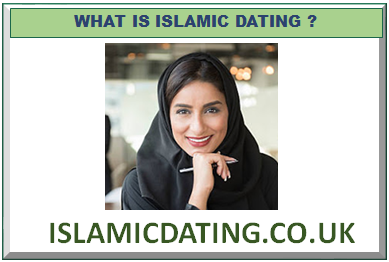
ISLAMIC DATING 2024
HALAL DATING SHARIA COMPLIANT MARRIAGE SITE HALAL ENCOUNTER MUSLIM DATE RELATIONSHIP SITES
Islamic dating in 2024 is by definition a form of courtship in Islam that is conducted under the principles of Sharia law, it is distinct from conventional Western dating practices.
In Islamic dating, physical intimacy and premarital sexual relations are strictly prohibited in Islam, this rule stems from the Islamic principle of preserving chastity and modesty, which are considered vital virtues in Islam.
Halal Dating process often involves various stages, starting with initial meetings in a safe and respectful environment, usually in the presence of family members, these meetings allow the individuals to get to know each other, discuss their goals, aspirations, and values, and see if they are compatible.
Islamic dating in 2024 has the ultimate objective to find a suitable partner for a stable and loving marriage and this form of dating upholds the importance of mutual respect, compatibility, and a shared commitment to Islamic values and family life.

Is dating for Muslims Halal or Haram?
The response is yes and no.
The traditional Islamic teachings emphasize that relationships should be focused on the intention of marriage, and casual dating is generally discouraged.
1. Halal Dating
Halal dating refers to courting or seeking a partner within the bounds of Islamic law. This approach to relationships is seen as permissible (Halal) when it adheres to certain guidelines:
- The primary intent of the relationship is seeking a marital partner.
- Physical intimacy and premarital sexual relations are avoided to uphold Islamic values of modesty and chastity.
- Family involvement and supervision are encouraged to maintain the integrity of the relationship.
- Interactions are respectful, honest, and transparent, reflecting Islamic principles of dignity and respect.
2. Haram Dating
On the other hand, any form of dating that contradicts Islamic teachings and principles is considered Haram, or forbidden. This includes relationships that involve:
- Casual dating without the intention of marriage.
- Physical intimacy outside of marriage.
- Secrecy or deceit, going against the principles of honesty and transparency.

What are the principles and guidelines of Halal dating?
Principles and Guidelines of Halal Dating
Principles
- Adherence to Islamic Teachings: All aspects of the relationship must align with Islamic principles, including modesty, respect, and morality.
- Intention of Marriage: The ultimate goal is to find a life partner for marriage, not casual dating or fleeting relationships.
- No Physical Intimacy: Physical contact and premarital sexual relations are prohibited to maintain chastity.
- Emotional and Spiritual Connection: Focus on building a deep emotional and spiritual connection rather than a physical one.
Guidelines
- Family Involvement: Families should be involved from the beginning to guide and supervise the relationship.
- Respectful Interaction: Interactions should be respectful and conducted in a dignified manner, adhering to Islamic decorum.
- Public Meetings: Meetings should take place in public or semi-public settings, or in the presence of a chaperone, to ensure safety and propriety.
- Open Communication: Honest and open communication about intentions, beliefs, and values is crucial to assess compatibility.
- Seeking Counsel: Consulting with knowledgeable and trusted individuals or religious leaders for advice and guidance is encouraged.
ON LINE FREE ISLAMIC DATING BY COUNTRY